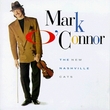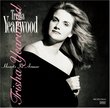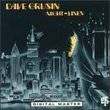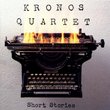| All Artists: Walter Piston, Jorge Mester, Robert Whitney, Louisville Orchestra Title: Walter Piston: Symphony No. 5; Symphony No. 7; Symphony No. 8 Members Wishing: 0 Total Copies: 1 Label: Albany Records Release Date: 10/24/2006 Genre: Classical Styles: Historical Periods, Modern, 20th, & 21st Century, Symphonies Number of Discs: 1 SwapaCD Credits: 1 UPC: 034061001126 |
Search - Walter Piston, Jorge Mester, Robert Whitney :: Walter Piston: Symphony No. 5; Symphony No. 7; Symphony No. 8
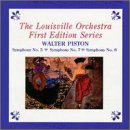 | Walter Piston, Jorge Mester, Robert Whitney Walter Piston: Symphony No. 5; Symphony No. 7; Symphony No. 8 Genre: Classical ![header=[] body=[This CD is available to be requested as disc only.]](/images/attributes/disc.png?v=15401716) ![header=[] body=[This CD is available to be requested with the disc and back insert.]](/images/attributes/disc_back.png?v=15401716) ![header=[] body=[This CD is available to be requested with the disc and front insert.]](/images/attributes/disc_front.png?v=15401716) ![header=[] body=[This CD is available to be requested with the disc, front and back inserts.]](/images/attributes/disc_front_back.png?v=15401716) |
Larger Image |
CD DetailsSimilarly Requested CDs
|
CD ReviewsRare recordings of these three superb symphonies and one of Discophage | France | 12/05/2007 (5 out of 5 stars) "Walter Piston needs no advocacy. He is recognized as one of the American masters and one of the country's major 20th Century symphonists, with an output of eight such compositions written between 1937 and 1965 - yet, given his reputation, he is certainly not over-represented in the recorded catalog: by my count, only #2, 3, 4 and 6 have had more than one recording (a broadcast recording of the 7th was also released on a 12-CD Philadelphia Orchestra's Centennial Collection), and among these, the original recordings of # 3 (by Howard Hanson on Mercury) hasn't been reissued on CD, # 4 by Ormandy on Albany is now out-of-print and sells at cut-throat prices on the secondary market, and #6 by Munch and the BSO has just been reissued by the Haydn House label, directly dubbed from the LP (in what I read are excellent transfers nonetheless).
Piston was also possibly Louisville's favorite composer, and the recordings of his works by the orchestra would probably fill nearly three thick CDs. The present one was the first issued by Albany in the late 1980s in a batch of ten devoted to reissues of the Louisville catalog. It collated the contents of one and a half Louisville First Edition Recordings LP : L 653 had the 5th Symphony, recorded in 1965 (date not provided in the liner notes), which came with William Kraft's Concerto Grosso, and LS 746 had the two others, conducted by Mester in 1974 and 1975. With the addition of the composer's Serenata, the same material was subsequently reissued in 2003 on the First Edition Recordings label of the Santa Fe Music Group, which had acquired the Louisville back catalog (Walter Piston: Serenata; Symphonies 5, 7 & 8). But with 65:50 of music, the Albany release was already an excellent offer. As for the other Louisville recordings of Piston's music, his ballet "The Incredible Flutist" was reissued on Albany TROY 016 with Hershey Kay's Cakewalk Ballet after piano pieces of Gottschalk (Two American Ballets) and the 1st Symphony on TROY 044 with Kurka's Good Soldier Schweik-suite and Menin's Cello Concerto (see my review of Kurka/Mennin/Piston: Orchestral Works). Still unreissued are the Viola Concerto (Lou 633) and the Ricercare (LS 789 ). How one reacts to Piston's music is of course a matter of taste. He may not be my favorite among the great 20th Century American symphonists - I prefer the motorism of Mennin's late symphonies (starting with the 7th from 1963), the "eventfullness" in Schuman's 3rd or again his late symphonies (8th though 10th, composed between 1962 and 1975), the Schoenbergian complexity of Sessions' and Riegger's. Still, I like the dramatic and often dissonant vigor of Piston's first movement allegros in Symphony # 5 & 7 (at times Hindemith comes to mind in the 7th - a Pulitzer prize winner in 1963 by the way, and Piston's second after the one awarded to his 3rd Symphony in 1948) and above all I am grateful to the composer for avoiding the cliched American prairie-style kind of slow movement that was so typical of Copland, Hanson, Diamond and even Mennin in his early symphonies or Piston himself in some of his (2nd and 4th). The way Piston achieves this is by avoiding the usual pastoral flute or oboe or English horn over carpet of strings, in favor of melodies that are more angular and brooding, either leading to powerful tuttis of quasi Brucknerian massiveness, or, when he does have the woodwind solo instrument convey the melody, underpinned by stern woodwinds and brass accompaniment, often in counterpoint. As a result, Piston's adagios are intensely lyrical without being sentimental. This includes the slow introductions to the first movement allegros, as in Symphony #5 - and the first movement of Symphony # 8 is just that, a slow intro, with no allegro. Speaking of which, Piston's 8th and ultimate composition in the genre is possibly the composer's towering achievement, among other reasons because of its original approach to form, with the first movement an intensely brooding lament, followed by another brooding slow movement. This one should have received the Pulitzer Prize - but a third one, among which two in a row was admittedly unprobable. Piston has been coined a neo-classicist, and he might be in his approach to symphonic architecture, but I think the term is misleading, in that neo-classicism is often associated with a kind of emotional detachment that goes with rhythmic spikiness and Bach-inspired formal processes. There is nothing emotionally uninvolved in Piston's Symphonies. I am not so taken with his finales, whose agitated muscularity (in the 8th) and brash boisterousness appear to me much more common and relying a little too much (in the 5th and 7th) on the common and cliched American hoe-down dance atmosphere, even verging on circus music in the 7th. Still, with these three superb symphonies, this is one of the best possible introductions to the art of Walter Piston. " |



